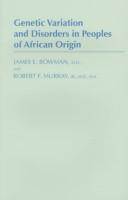| Listing 1 - 4 of 4 |
Sort by
|

ISBN: 019929092X 9780199290925 9780199238491 0191710458 9786610870158 0191537489 128087015X 1429487119 Year: 2006 Volume: *1 Publisher: Oxford ; New York Clarendon Press
Abstract | Keywords | Export | Availability | Bookmark
 Loading...
Loading...Choose an application
- Reference Manager
- EndNote
- RefWorks (Direct export to RefWorks)
Progress in genetic and reproductive technology now offers us the possibility of choosing what kinds of children we do and don't have. Should we welcome this power, or should we fear its implications? There is no ethical question more urgent than this: we may be at a turning-point in the history of humanity. The renowned moral philosopher and best-selling author Jonathan Glover shows us how we might try to answer this question, and other provoking and disturbing questions to which it leads. Surely parents owe it to their children to give them the best life they can? Increasingly we are able to reduce the number of babies born with disabilities and disorders. But there is a powerful new challenge to conventional thinking about the desirability of doing so: this comes from the voices of those who have these conditions. They call into question the very definition of disability. How do we justify trying to avoid bringing people like them into being? In 2002 a deaf couple used sperm donated by a friend with hereditary deafness to have a deaf baby: they took the view that deafness is not a disability, but a difference. Starting with the issues raised by this case, Jonathan Glover examines the emotive idea of 'eugenics', and the ethics of attempting to enhance people, for non-medical reasons, by means of genetic choices. Should parents be free, not only to have children free from disabilities, but to choose, for instance, the colour of their eyes or hair? This is no longer a distant prospect, but an existing power which we cannot wish away. What impact will such interventions have, both on the individuals concerned and on society as a whole? Should we try to make general improvements to the genetic make-up of human beings? Is there a central core of human nature with which we must not interfere? This beautifully clear book is written for anyone who cares about the rights and wrongs of parents' choices for their children, anyone who is concerned about our human future. Glover handles these uncomfortable questions in a controversial but always humane and sympathetic manner.
Biologie humaine -- Morale et aspects éthiques --- Biomedical ethics --- Biomedische ethiek --- Biomédecine -- Morale et aspects éthiques --- Children--Diseases--Genetic aspects --- Counseling genetique --- Deontologie [Medische ] --- Deontology [Medical ] --- Déontologie médicale --- Désordres génétiques chez les enfants --- Enfant [Désordres génétiques chez l' ] --- Enfants [Désordres génétiques chez les ] --- Ethics [Medical ] --- Ethiek [Medische ] --- Ethique médicale --- Genetic counseling --- Genetic disorders in children --- Genetische counseling --- Genetische stoornissen bij kinderen --- Kinderen [Genetische stoornissen bij ] --- Medical care -- Moral and ethical aspects --- Medical deontology --- Medical ethics --- Medicine -- Moral and ethical aspects --- Medische deontologie --- Medische ethiek --- Morale et médecine --- Morale médicale --- Médecine -- Innovations -- Morale et aspects éthiques --- Médecine -- Morale et aspects éthiques --- Médecine et morale --- Politique sanitaire -- Morale et aspects éthiques --- Soins médicaux -- Morale et aspects éthiques --- Stoornissen [Genetische ] bij kinderen --- Troubles génétiques chez les enfants --- Éthique clinique --- Abnormalities, Human --- Genetic counseling. --- Genetic disorders in children. --- Medical ethics. --- Reproductive Techniques --- Genetic Engineering --- Preimplantation Diagnosis --- Genetic aspects. --- ethics. --- Ethics. --- Professional ethics. Deontology --- Abnormalities [Human ] --- Genetic aspects
Book
ISBN: 0443045240 Year: 1992 Publisher: Edinburgh New York Madrid Churchill Livingstone
Abstract | Keywords | Export | Availability | Bookmark
 Loading...
Loading...Choose an application
- Reference Manager
- EndNote
- RefWorks (Direct export to RefWorks)
Human genetics --- Clinical genetics --- Congenital diseases --- Diseases--Genetic aspects --- Disorders [Genetic ] --- Disorders [Inherited ] --- Désordres génétiques --- Genetic diseases --- Genetic disorders --- Genetica [Medische ] --- Genetics [Medical ] --- Genetische stoornissen --- Génétique médicale --- Hereditary diseases --- Heredity of disease --- Inherited diseases --- Medical genetics --- Medische genetica --- Stoornissen [Genetische ] --- Troubles génétiques --- Genetics, Medical. --- Hereditary Diseases. --- Medical genetics. --- Genetic disorders. --- Maladies héréditaires --- Genetic Diseases, Inborn. --- Génétique médicale --- Maladies héréditaires

ISBN: 0801839629 Year: 1990 Volume: vol *6 Publisher: Baltimore London Johns Hopkins University Press
Abstract | Keywords | Export | Availability | Bookmark
 Loading...
Loading...Choose an application
- Reference Manager
- EndNote
- RefWorks (Direct export to RefWorks)
Black race --- Congenital diseases --- Disorders [Genetic ] --- Disorders [Inherited ] --- Désordres génétiques --- Genetic diseases --- Genetic disorders --- Genetische stoornissen --- Hereditary diseases --- Inherited diseases --- Race noire --- Stoornissen [Genetische ] --- Troubles génétiques --- Variatie (Genetica) --- Variation (Genetics) --- Variation (Génétique) --- Zwarte ras --- Black race. --- Blacks --- Genetic disorders. --- Human genetics --- Hereditary Diseases --- Variation (Genetics). --- Health and hygiene. --- Variation. --- genetics. --- ethnology. --- Genetics. --- Ethnology. --- Health --- Variation --- Blacks - Health. --- Human genetics - Variation.

ISSN: 0070217X ISBN: 3540615180 9783540615187 3642644341 3642605052 Year: 1997 Volume: 221 Publisher: Berlin ; New York ; Tokyo Springer
Abstract | Keywords | Export | Availability | Bookmark
 Loading...
Loading...Choose an application
- Reference Manager
- EndNote
- RefWorks (Direct export to RefWorks)
M. B. KASTAN Cancer is a disease resulting from alterations of cellular genes which cause phe notypic changes in somatic cells. Usually, when we think about genetic diseases, we think about inheriting one or two abnormal genes from our parents and these gene abnormalities confer the disease phenotype. In contrast, in the majority of cancers, no such inherited gene abnormalities can be identified (which does not mean that they do not exist) and there is no obvious family history suggesting an inherited disease. The vast majority of genes which are altered in the cancer cells are not transmitted through the germ line, but rather become abnormal in somatic cells sometime during the lifetime of the individual. Thus, the critical question which arises is "how do these genetic changes occur in somatic cells?". Epidemiologic data suggest that exposure to environmental carcinogens con tributes to the genesis of at least 80% of all human cancers (DOLL and PETO 1981). Thus, it is natural to suspect that the genetic changes in somatic cells which con tribute to the transformed phenotype arise from DNA damage caused by such exposures. Therefore, understanding how cells respond to DNA-damaging agents is likely to be an important component of our understanding of the genesis of human tumors.
Cancer--Pathogenesis --- Carcinogenese --- Carcinogenesis --- Carcinogénèse --- Congenital diseases --- Disorders [Genetic ] --- Disorders [Inherited ] --- Désordres génétiques --- Genetic diseases --- Genetic disorders --- Genetische stoornissen --- Hereditary diseases --- Inherited diseases --- Kanker--Ontstaan --- Oncogenesis --- Pathogenesis of cancer --- Stoornissen [Genetische ] --- Troubles génétiques --- Tumorigenesis --- Tumors --- DNA repair. --- Neoplasms --- DNA Damage. --- DNA Repair. --- Mutagenesis. --- Genetic aspects. --- Genetics. --- Etiology. --- Dna damage --- DNA repair --- genetics --- Dna damage. --- genetics. --- etiology. --- Cancer research. --- Cell biology. --- Biochemistry. --- Environmental health. --- Cancer Research. --- Cell Biology. --- Biochemistry, general. --- Environmental Health. --- Environmental quality --- Health --- Health ecology --- Public health --- Environmental engineering --- Health risk assessment --- Biological chemistry --- Chemical composition of organisms --- Organisms --- Physiological chemistry --- Biology --- Chemistry --- Medical sciences --- Cell biology --- Cellular biology --- Cells --- Cancer research --- Health aspects --- Environmental aspects --- Composition --- Deoxyribonucleic acid repair --- Repair, DNA --- Repair mechanisms in DNA --- Biochemical genetics --- Antimutagens --- Cancer --- Pathology --- Genetic toxicology --- Pathogenesis
| Listing 1 - 4 of 4 |
Sort by
|

 Search
Search Feedback
Feedback About UniCat
About UniCat  Help
Help News
News